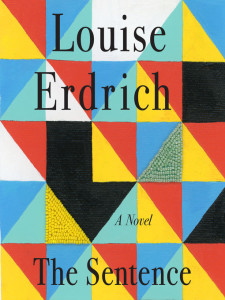
When Tookie is sent to federal prison for moving a dead body—it was to help a friend and Tookie didn’t know what else she was moving—a teacher sends her a dictionary. The study of words saves her sanity. Sentence, for example, is not just an independent thought or expression. It is not just a mathematical equation or logical statement. It is both a judgment and a punishment. She says that “the most important skill I’d gained in prison was how to read with murderous attention.”
When she is unexpectedly released after ten years, she goes to work at an independent bookstore in Minneapolis specialising in indigenous history, fiction, memoir and poetry, a stand-in for Erdrich’s own Birchbark Books. Native American herself, Tookie is fascinated to learn about her own culture and loves finding just the right book for a hard-to-please customer.
Less enjoyable are the wanna-bes, the White people who wish for or actually claim native American heritage, such as the domineering Flora who comes in every day bearing unwanted gifts until she unexpectedly dies, holding a book. From then on, her uneasy spirit haunts the bookstore, at first seen only by Tookie and later by the others who work there.
I would have been happy to live in this book for five times as long as it took to read it. I love Tookie’s voice as narrator: low-key, expecting the worst, appreciating what isn’t, aware of her own faults. I love her courage and her passion. She adores her now-husband Pollux despite the fact that he was the tribal policeman who arrested her, and has a testy relationship with his daughter Metta who turns up with a baby.
Then comes 2020. Up to that point, the impact of the larger society has already been felt. In addition to the wanna-bes and the issues independent bookstores face, Tookie says, “I was on the wrong side of the statistics. Native Americans are the most oversentenced people currently imprisoned,” and knows how lucky she is to have found a job after prison.
We are so engrossed in her ordinary and extraordinary life, that her reaction to the pandemic, the shutdown, George Floyd’s murder and the protests in her city mirror our own, making the unexpected familiar.
I love the easy mix of social classes in this story and the friendships that develop. I love the understated humor and the way current events are folded into the story. I love the fluid boundaries between past and present, reason and spirituality, those we hold dear and those who haunt us.
Most of all I love the books: title after title bandied about as Tookie tries to find the right book for a discerning customer or one-up a co-worker. I’m poring over the list provided for free by the publisher, checking off the ones I’ve read, highlighting the ones I want to read.
Tookie’s is a different world from the one James MacBride conjures in Deacon King Kong, but it is equally vibrant and so real I felt I knew these people. What a wonderful book!
What’s your favorite Louise Erdrich book?
